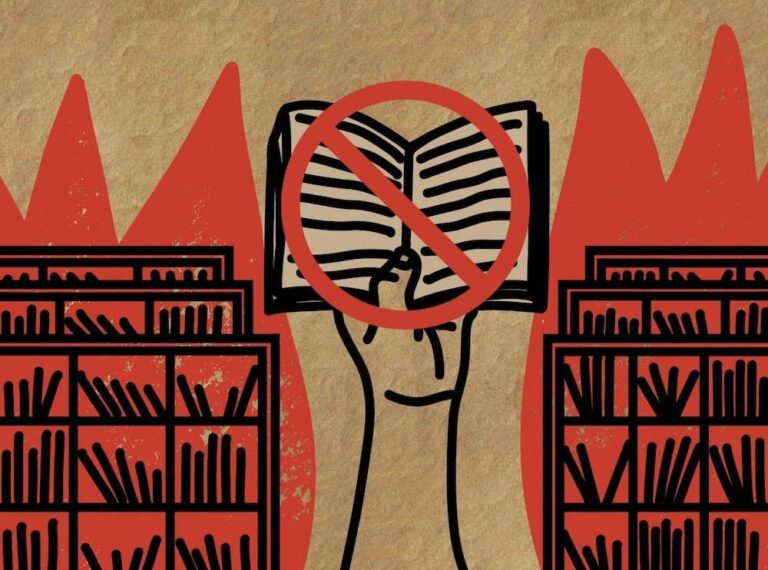In recent years, the United States has witnessed a marked increase in efforts to restrict access to certain books, igniting fierce debates over censorship, education, and free expression. PEN America, a leading advocate for literary freedom, has sounded the alarm on what it describes as the ŌĆ£normalization of book banning.ŌĆØ This disturbing trend, which once sparked outrage as isolated incidents, is now becoming a widespread and systematic challenge to intellectual freedom in schools and libraries across the nation. This article explores PEN AmericaŌĆÖs latest findings on the resurgence of book bans, the cultural and political forces driving them, and the broader implications for democracy and the right to read.
The Rise of Book Bans Across American Schools and Libraries
Across the United States, an increasing number of educational institutions and public libraries are restricting access to books that tackle complex social issues or represent diverse perspectives. These bans often target works addressing race, gender, sexuality, and history, sparking heated debates over censorship and intellectual freedom. What was once a rare and contested practice has now gained momentum, with some districts implementing official policies that systematically remove hundreds of titles from shelves. Critics argue this trend undermines studentsŌĆÖ ability to engage critically with different worldviews and stifles essential conversations about identity and society.
Data collected from recent reports highlights the scope and variety of banned content, revealing patterns in targeted genres and authors:
| Category | Commonly Banned Themes | Notable Examples |
|---|---|---|
| Fiction | Racial injustice, LGBTQ+ narratives | The Hate U Give, Gender Queer |
| Non-fiction | American history, Civil rights movements | Stamped, White Fragility |
| ChildrenŌĆÖs/Young Adult | Diverse family structures, mental health | And Tango Makes Three, Simon vs. the Homo Sapiens Agenda |
The long-term consequences of this widespread censorship might not be immediately visible, but experts warn it risks creating educational environments that lack inclusivity and hinder critical thinking skills.
- Suppresses underrepresented voices
- Limits student exposure to real-world issues
- Encourages a sanitized and incomplete understanding of history
Impact on Freedom of Expression and Intellectual Diversity
The widespread acceptance of book banning presents a profound threat to the very foundation of free expression. When entire narratives are systematically removed from public access, it inherently narrows the scope of ideas that society can engage with and debate openly. Authors, educators, and readers alike find themselves navigating a landscape where critical voices are silenced, and uncomfortable truths are hidden. This environment undermines the diversity of thought that is essential for intellectual growth, cultural understanding, and social progress.
Consequences of Restricted Intellectual Diversity:
- Homogenization of Ideas: Limiting access to varied perspectives results in a uniform worldview, stunting creativity and innovation.
- Marginalization of Minority Voices: Books representing minority experiences or dissenting viewpoints are disproportionately targeted, erasing important cultural histories.
- Educational Gaps: Students and lifelong learners lose opportunities to engage critically with complex societal issues.
- Chilling Effect on Authors: Writers may self-censor to avoid controversy, reducing the richness of literary expression.
| Aspect | Impact |
|---|---|
| Freedom of Speech | Undermined by censorship and fear of reprisal |
| Literary Diversity | Diminished with fewer voices represented |
| Public Discourse | Less informed and more polarized debates |
| Youth Education | Restricted access to formative and challenging ideas |
Legal Challenges and Advocacy Efforts by PEN America
PEN America has taken a resolute stance against the growing trend of book banning by engaging in numerous legal battles aimed at protecting the freedom to read. Through strategic litigation and amicus briefs, the organization has challenged state and local policies that impose undue censorship on educational content. Their efforts are not only legal but also persuasive, highlighting the constitutional implications of suppressing diverse narratives. PEN AmericaŌĆÖs advocacy underscores the importance of maintaining open access to literature as a cornerstone of democratic society.
Beyond the courtroom, PEN America actively mobilizes public awareness campaigns and collaborates with librarians, educators, and authors to resist censorship. These initiatives include:
- Awareness drives educating communities on the dangers of normalized book banning
- Support networks providing resources for schools and libraries facing bans
- Public forums and panel discussions amplifying voices affected by censorship
Such multifaceted efforts reveal the organization’s commitment to counteracting the rise of restrictive policies and preserving intellectual freedom.
Strategies for Educators and Communities to Resist Book Censorship
Empowering educators and community members to effectively push back against book censorship requires a multifaceted approach. First, fostering open dialogue about the importance of diverse narratives builds resilience against restrictive measures. Hosting literary forums, workshops, and panel discussions can cultivate critical thinking and awareness about why access to varied literature enriches education and society as a whole. Encouraging collaboration between schools, libraries, and local literary organizations strengthens a united front that advocates for intellectual freedom.
Moreover, strategic action plans must include the following key initiatives:
- Developing supportive policies: School boards and councils should implement clear anti-censorship guidelines to safeguard educational content.
- Promoting transparency: Communities can demand public reporting on book challenges and bans to keep stakeholders informed.
- Legal advocacy: Partnering with organizations like PEN America enables legal defense for libraries and schools under attack.
- Digital empowerment: Leveraging online platforms to share banned book lists and create virtual reading groups counters physical restrictions.
| Strategy | Community Role | Outcome |
|---|---|---|
| Advocacy Workshops | Parents, educators | Heightened awareness & mobilization |
| Policy Development | School Boards | Formal protection for diverse literature |
| Legal Partnerships | Legal Groups, Libraries | Robust defense against censorship |
| Digital Campaigns | Students, Activists | Broader access & community engagement |
To Conclude
As debates over the limits of free expression continue to intensify across the United States, the normalization of book banning raises urgent questions about the future of intellectual freedom in American schools and libraries. PEN AmericaŌĆÖs latest report shines a critical light on the growing trend of censorship, urging policymakers, educators, and communities to remain vigilant against efforts that threaten open access to diverse ideas and voices. Whether this wave of book bans will prompt a broader conversation about inclusion and educationŌĆöor further erode foundational rightsŌĆöremains a pivotal issue to watch in the months ahead.




